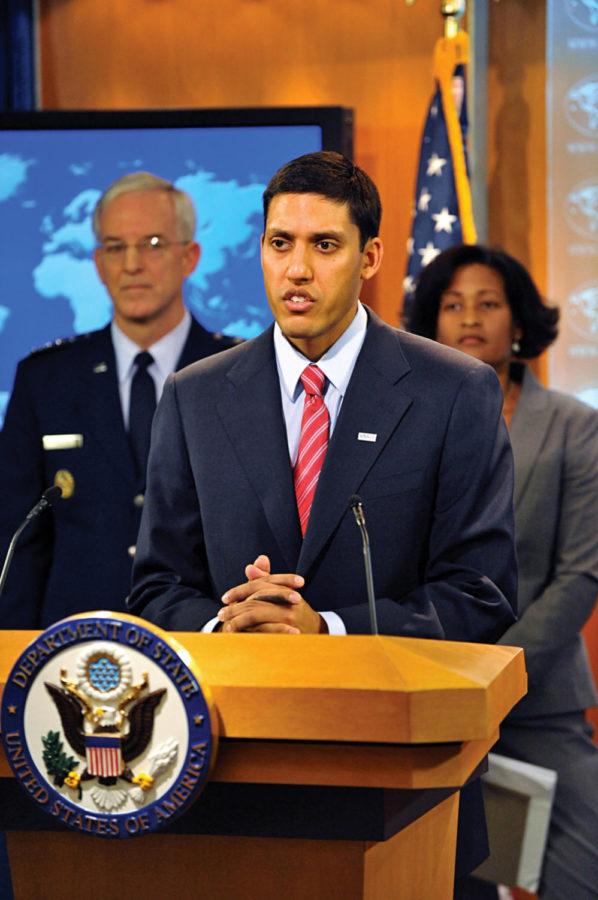USAID and Peace Corps speakers address global food security
Speakers from the U.S. Agency for International Development and the Peace Corps will present “Feed the Future: Food Security and Agriculture in Development” on Thursday. The lecture is about sutainably reducing global poverty and hunger.
October 18, 2012
ISU students can get involved in the effort to sustainably reduce global poverty and hunger. Rajiv Shah, administrator for the U.S. Agency for International Development, and Carrie Hessler-Radelet, acting director of the Peace Corps, will present “Feed the Future: Food Security and Agriculture in Development.”
The adventure starts at 4:30 p.m. Thursday, Oct. 18, in the Great Hall of the Memorial Union, where students will have an opportunity to attend the World Series Affairs keynote address.
“The greatest scientific and practical challenge in the next 30 to 40 years will be to feed all the people in the world,” said Max Rothschild, a Charles F. Curtiss Distinguished Professor of animal science. “Feed the Future is the U.S. government’s response to try to help do this. Everyone, especially young people, should be interested in this challenge because it affects their future.”
Feed the Future addresses the issue of food security, which is essentially a country’s ability to produce a sustainable amount of healthy and nutritious food for its people.
“[This initiative] tackles the persistent problem of chronic hunger and malnutrition around the world,” Shah said. “The presidential initiative brings together the private sector, nongovernmental organizations, women’s cooperatives and local communities to support groundbreaking approaches to advance global food security.”
USAID and Peace Corps work together alongside local entities to help develop and improve the country’s existing agricultural sectors. Peace Corps’ Feed the Future volunteers work closely with USAID to ensure that innovative food security practices reach agricultural communities, Hessler-Radelet said.
“Peace Corps is on the front lines of Feed the Future, taking the U.S. government’s commitment to food security to the grassroots level in developing countries through its volunteer programming,” Hessler-Radelet said. “[Volunteers ensure] that the communities are partners in implementing those practices and that the practices are sustained over time.”
Agriculture has an important role in the Feed the Future initiative, influencing both a country’s financial well-being and its people’s health. In most of the countries that USAID works in, Rothschild said, over 50 percent of the gross national product is related to agricultural output.
“If you’re going to grow that [amount of food] to feed the people within a country, you have to help them produce more and waste less,” Rothschild said.
Post-harvest losses is an area in development. In some parts of the world, 30 to 40 percent of the food grown in the field is wasted due to issues such as spoiling and improper processing by the time it gets to the market, Rothschild said. People who are better equipped with the resources and knowledge for raising their crops will produce more nutritious food and waste less.
The Feed the Future initiative aims to develop and strengthen the agricultural sectors in developing countries, which leads to the production of healthy and nutritious food for their people.
“Known for its outstanding leadership in agriculture, Iowa State is the perfect place to talk about President [Barack] Obama’s Feed the Future initiative,” Shah said. “I look forward to talking with students about how they can get involved.”

















